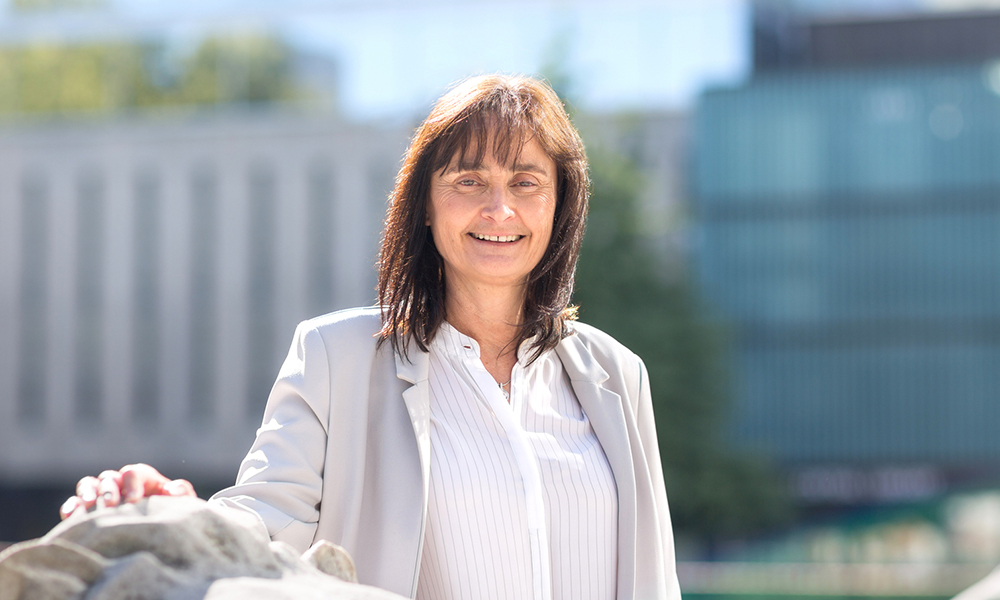UK Appoints Prof Michele Dougherty as First Female Astronomer Royal in Historic Milestone
Astronomer Royal a title that has symbolized Britain’s highest authority in astronomy since 1675 has just been awarded to a woman for the first time in 350 years. Professor Michele Dougherty, a pioneering space scientist, has been officially appointed as the new Astronomer Royal, a move being celebrated as a landmark moment for gender representation in science.
What makes her journey truly compelling is not just the historic nature of her appointment, but how far she has come. Growing up in South Africa, Dougherty didn’t even study science in secondary school. Instead, she followed a path guided by curiosity and a telescope she helped build with her father and sister. That moment, when she first viewed Jupiter and its moons, planted the seed that would grow into a lifelong pursuit of planetary exploration.
A Passion for Space, A Telescope, and a Role That Changed History
Today, Dougherty is not only a distinguished physicist and professor but also a key contributor to major international space missions. She is currently working with the European Space Agency on a mission that aims to explore Jupiter’s icy moons, with a focus on whether these distant celestial bodies could potentially harbor life.

Appointed as the official astronomical advisor to King Charles III, Dougherty brings more than her scientific expertise to the role. She brings inspiration. “I want to open people’s eyes to the wonders of space,” she shared during the announcement of her appointment. With infectious enthusiasm, she emphasized her desire to connect with the public, encourage young minds, and highlight the value of astronomy not just as science, but as a vital contributor to the UK’s economy and innovation landscape.
The Astronomer Royal role dates back to the 17th century when King Charles II established the Royal Observatory in Greenwich. The position’s original purpose was to help improve sea navigation through the study of the stars. Over centuries, the role evolved from guiding the monarchy to advising governments, aiding in technological advances like railways and telegraphy, and today, fostering global scientific collaboration.

Before Dougherty, 15 men held this prestigious post. But times are changing, and so is the face of science. The appointment comes in a new era where institutions are increasingly recognizing the importance of diversity and representation in scientific fields. Professor Catherine Heymans, who became Astronomer Royal for Scotland in 2021, expressed joy at the news, noting how the shift reflects a broader change in the scientific community.
Astronomer Royal Role Now Shines a Light on Inclusion in Science
Despite her groundbreaking status, Dougherty is modest about her role. She acknowledges that while she doesn’t want the spotlight to be only on her gender, she understands how powerful it is for young people to see someone who looks like them in such a position. “When children see a role model they can relate to, it shifts their thinking. It opens doors in their minds,” she said.
Her influence has already been felt during her tenure as head of the physics department at Imperial College London from 2018 to 2024. During that time, the percentage of female undergraduate students in physics rose from 19% to 25% a sign of gradual but meaningful progress. While she admits the increase isn’t massive, it shows the positive ripple effects of representation in leadership. Also Read: Liberation Day Shock 2025: How Trump’s New Tariffs Stirred Asian Economies
Dougherty’s rise in the world of astronomy is not just a personal achievement; it symbolizes a breaking of barriers in a field historically dominated by men. Her work from leading instrument design on missions to Saturn and now to Jupiter positions her among the top planetary scientists not just in the UK but globally.
What stands out is her relentless pursuit of knowledge despite early challenges. She entered university without formal science education, relying on her math skills and determination to catch up. “The first few years were like learning a new language,” she recalled. But with persistence and a willingness to say “yes” to the unknown, she climbed to the highest ranks of space science.
Conclusion:
The appointment of Prof Michele Dougherty as Astronomer Royal isn’t just a ceremonial title it’s a powerful signal of progress in science. Her journey, driven by curiosity and resilience, reflects a broader transformation in the world of astronomy, where diversity is not only welcomed but essential for discovery. As she takes on this historic role, Dougherty is set to inspire a new generation to reach for the stars just as she once did with a homemade telescope.

